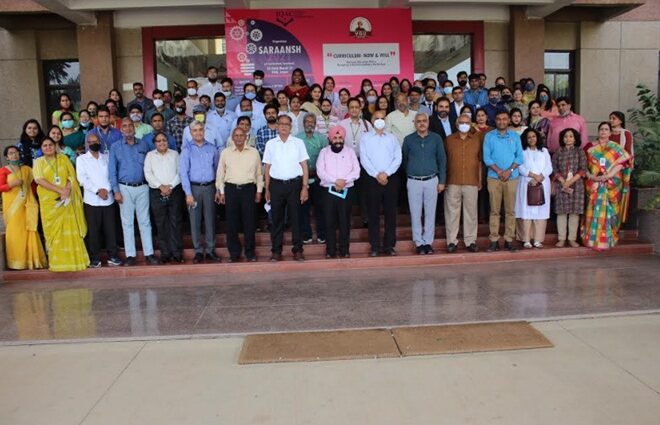Prof. Avinash Singh
In the age of artificial intelligence, where virtual is ‘reality’; when driverless vehicles are under advance stages of testing and digital humans are set to take over the man-manoeuvred operations worldwide, is India’s new education mechanism dynamic enough to absorb rumbles of frequent technological changes?
Are interventions recommended by TSR Subramaniam committee and submissions of high profile NITI Aayog put in place by a crack team led by Dr Kasturirangan in the form of National Education Policy 2020 aiming to integrate vocation and technology, set to deliver results?
Will anytime education in any mode and your degrees your way offering multiple entries and exits, once implemented, have the required impact? When would it come into motion is anybody’s guess!
Not much has changed in the biggest education market in the world of since guidelines were last adopted in 1986. Implementations thereafter have been piecemeal, while sweepstakes the world over have undergone total transformation. We signed WTO in 1995 and went for an international outlook first time in 2003. Despite making big strides in area of communication and automation, delivery of education never went for any substantial change here in these years.
India, comprising 317 million students, 1.6 million schools, close to 37,000 professional institutions, over 770 universities and 60-odd institutions of excellence, is the largest education market in the world – it’s bigger than China that has a listed student populace of 260 million.
With 107 million in the age group of 0-4 years, learners’ bandwagon of the country is set to overtake the total population of the United States, at 318.5 millions. Till March 2020, about 300,000 scholars were leaving Indian shores every year to study abroad, when Covid-19 stalled their run. Their annual spend has almost been double than the Budget allocation on higher education and nearly ten times more than home institutions’ collective research expense.
The trends reflect a growth that is imbalanced and lop-sided. Indians have made their mark in the IT and digitised applications, and to an extent, in the corporate sector! However, much needs to be done on making education more interactive and job-oriented in tune with the world market.
Author was a participant at Saraansh, a conclave to discuss Curriculum — Now and Will an august gathering of over 60 academics, industry professionals, subject experts, teachers and researchers at Vivekanand Global University (VGU), Jaipur last week. Ideas, views, deliberations were exchanged over three days in one single and many small group meetings on an array of streams. It was similar to one I had attended at Royal Global University, Guwahati sometime back. Many more such endeavours – both in the Govt and private sector are required before the NEP-2020 is implemented.
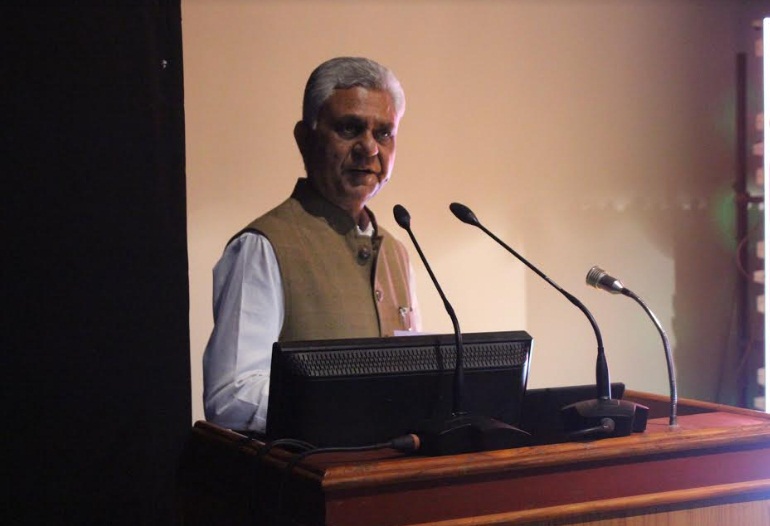
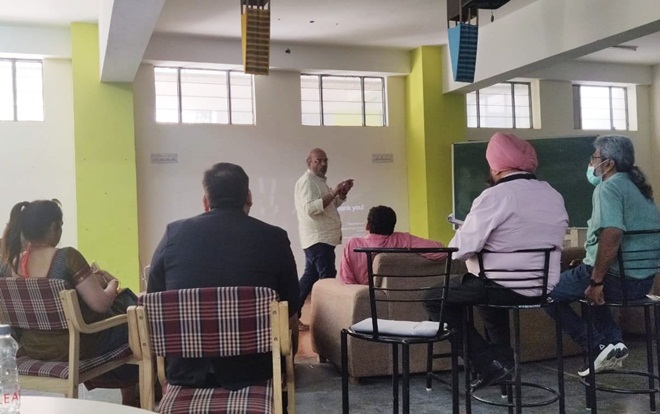
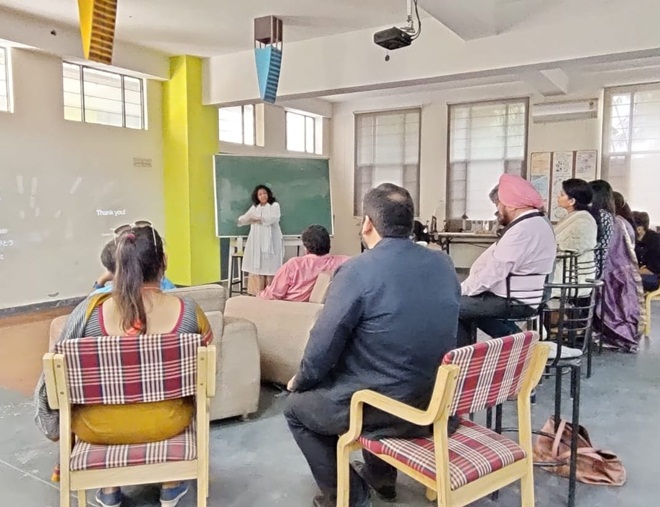

Here are the broad excerpts of what the top University and industry leaders planned for the times to come in the wake of the impending execution of the new policy.
“Earlier we were covering the courses only. We will start uncovering the courses now. Real potential of the syllabi will come now,” opined Dr Sandeep Sancheti, Vice Chancellor of Marwar University! He was of the viewpoint that Dr Kasturirangan and team has done a wonderful job. Next big step would the commissioning!
“There are no boundaries in future education, no water tight compartments. Credit based degrees are to be the new norm. Academic Bank of Credit (ABC) can make you do your degree your way with options for multiple exits and entries. Currently you have to pursue Science, Commerce or Arts. You will have the liberty of choosing Physics with English Literature, Actuarial Science and Modern Arts to get a Bachelor in Liberal Arts,” Prof Sancheti revealed.
K R Bagria, Founder Chairman of a well-known private University wanted educators to open their mindset and “free your vision of all apprehensions.”
Ajay Data, CEO of a data company believed that the country has to move from doubt-based education that needed invigilation in the wake of rampant cheating, to trust-based learning where examinees show their mettle through their hands-on projects. He wanted the nation to get ready for future classes of 1,00,000 students from the current ceiling of 90 in a class. “In the age of on-line delivery and data being compiled and managed internationally, no one was indispensible. Industry captains are aware of the fact that leaders of yesteryears perished because they did not keep pace with relative up-gradation in the market,” he underlined. He was happy to announce that coding, happening in English only, was now possible in Hindi too.
The new regime as per Mr Lalit K Panwar, Chairman of VGU, would mean: “How not to drown before learning swimming. From being Dronacharyas, University dons have to become, drone archaryas in the emerging scenario.”
He called for complete integration of skills and mainstream learning and teaching. “You need to know how to turn bans (bamboo) into a bansuri (flute) with each hole producing different sound,” he quipped.
“We have to look beyond the legacy of Lord Macauley. Corona has to be coronated. Hampered mobility has resulted in rejuvenated environ, ecology has been re-strengthened, rather disrupted. Brain drain temporary put on hold. Care has to be taken that paan pichkaris do not come back, pollution is kept under check and more and more students can stay back at study here” he added.
Er Onkar Bagaria, CEO of VGU is all for NEP-2020. “It should open a plethora of opportunities. Thanks to online education, speed of change has been very high in one year. With work from home new norm for industry is 4.0 and it’s 5.0 for education. We are vocal for local and technology is part of every study, be it IT or agriculture. Emerging technologies are leading to emerging careers” he claimed. More incubation centres are need of the hour and bandwidth has to increase, he insisted.
Noted academician, Dr Vijay Vir Singh, is was for increasing the quality of learning. Focus has to shift from delivering lectures to market requirements and how make the student not just employable but deployable – the case where industry waits for pass outs of a particular group or brand. “In today’s dynamic world, knowledge, economy, curriculum and data are important. Teaching has to be skill, discussion, analysis and project-based. Evaluation of the outcome of curriculum is not the end but beginning,” he advocated.
Common refrain was the current outlay on education has to increase, all types of delivery — classroom, online and part-time – need to get better, faculty selection, curriculum development and accreditation issues streamlined and seamless connectivity provided to close to 40 per cent net users among the total population touching 135 billion.
Experts who made their presence felt with their presentations included Dr Rupali Shrivastava, the convenor, Dr Baldev Singh, Dean and coordinator of the Internal Assurance Committee, Dr Shweta Chaudhary, Dean of CODE, Ms Shipra Bhargava, a design professional and Ashish Chatterjee an expert in visual communication and design. Observing Nitin Jaiswal, an alumni of Amity School of Communication provided a sense of pride.
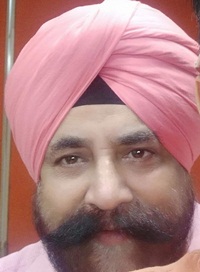 (Prof Avinash Singh, CEO of Linkages, is a former Pro-Vice Chancellor of University of Technology and Management , Shillong. He was Director General with LESDEP Foundation, IMR, Ghaziabad and Mangalayan University, Aligarh. A former Special Correspondent with Hindustan Times, Singh was also Professor and Head, Department of Journalism and Communication with Guru Nanak Dev University and was Dean Students at Regional Campus at Jalandhar. He began his career as Sports Reporter with The Tribune. He has special assignments to credit for BBC, TIME magazine, Reuters, VOA and ANI)
(Prof Avinash Singh, CEO of Linkages, is a former Pro-Vice Chancellor of University of Technology and Management , Shillong. He was Director General with LESDEP Foundation, IMR, Ghaziabad and Mangalayan University, Aligarh. A former Special Correspondent with Hindustan Times, Singh was also Professor and Head, Department of Journalism and Communication with Guru Nanak Dev University and was Dean Students at Regional Campus at Jalandhar. He began his career as Sports Reporter with The Tribune. He has special assignments to credit for BBC, TIME magazine, Reuters, VOA and ANI)

